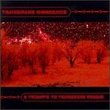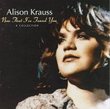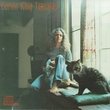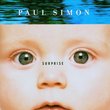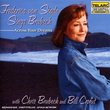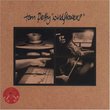| All Artists: Thomas Allen, Carl Orff, Andre Previn, London Symphony Orchestra, Sheila Armstrong, Gerald English Title: Orff: Carmina Burana Members Wishing: 0 Total Copies: 0 Label: EMI Classics Original Release Date: 1/1/1975 Re-Release Date: 3/9/1999 Album Type: Original recording remastered Genre: Classical Styles: Opera & Classical Vocal, Historical Periods, Modern, 20th, & 21st Century Number of Discs: 1 SwapaCD Credits: 1 UPCs: 724356695122, 724356695153 |
Search - Thomas Allen, Carl Orff, Andre Previn :: Orff: Carmina Burana
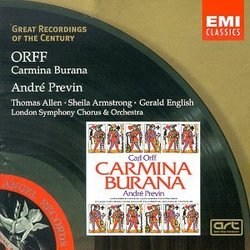 | Thomas Allen, Carl Orff, Andre Previn Orff: Carmina Burana Genre: Classical
André Previn's 1975 EMI recording of Carmina Burana sounds better than ever in this new transfer. The analog tape hiss has been tamed, yet there's more "air" between the notes and a greater sense of dynamic and timb... more » |
Larger Image |
CD DetailsSynopsis
Amazon.com André Previn's 1975 EMI recording of Carmina Burana sounds better than ever in this new transfer. The analog tape hiss has been tamed, yet there's more "air" between the notes and a greater sense of dynamic and timbral definition. Engineering-wise, the mid-70s were golden years for EMI, and the rhythmic verve, dramatic momentum, and unbuttoned joy that Previn and his brilliant forces project still pack a sonic wallop. The soloists especially are outstanding. Thomas Allen navigates Orff's cruelly high tessitura with no effort, and Sheila Armstrong wraps her warm, flexible pipes around "In trutina mentis dubia" to moving effect. Gerald English gives just the right character to the roasted swan's lament, without overly exaggerating. In short, this performance surpasses Previn's live Vienna Philharmonic remake for DG, and ranks with Shaw (Telarc), Dorati (Decca), Blomstedt (Decca), Ormandy (Sony), Muti (EMI), and Mata (RCA) among the best recordings on disc of Carl Orff's pre-minimalist masterpiece. --Jed Distler Similar CDsSimilarly Requested CDs
|
CD ReviewsExcellent Presentation of one of the Best Musical Parodies C. Bickford | 10/21/1999 (5 out of 5 stars) ""Carmina Burana" has been used countless times in Movies and on TV ever since Karl Orff wrote it in 1937, including in the Films Excalibur, Doors, My First Wife (and imitated in many others, such as The Omen); UK TV ads for Old Spice; BBC2's Timewatch and many more. Although Orff's best music is in "Schulwerk" of 1930-35, Carmina Burana, and "O Fortuna" in particular have a more popular appeal, due to it's heavy percussions, precise choruses and unbeatable music. Orff resurrected the medieval poems or songs (Carmina)written in the monastary of Beuren (Burana). These songs were found in 1803 in the German province of Bavaria and Orff wrote music for them. This music conjures up the ectasy expressed in the lyrics, an enhanced intense feeling for life akin to the passions and revelry of the wandering poets of so long ago. But for listeners like you and me, who probably are used to thinking of Classical music as consisting of big fat yodelling ladies wearing pointed hats, or music that is plain sedate, Carmina Burana pleads to the contrary. A lively and sometimes funny portrayal of medeival life and a fair poke at the nobility of that era." Best interpretation C. Bickford | Round Lake Beach, IL USA | 11/04/2000 (5 out of 5 stars) "Being somewhat of a fanatic about Carmina Burana, I have had occasion to listen to several recordings of these songs.This recording is, without a doubt, the best one there is. From the opening of 'O Fortuna', where the silence speaks as eloquently as the crash of the music, through the solos of the sorpranos at the end, which makes the hair on the back of my neck stand up, it is so clear and pure, the performance is superb.If you've ever heard 'O Fortuna' in many of the movies that it appears in, you should buy this CD without hesitation and listen to it." Good But James Levine's Is Better Charles McVey | Huntington Beach, CA USA | 03/20/2002 (4 out of 5 stars) "I have compaired this recording against James Levine and the Chicago Symphony Chorus & Orchestra DDD recording and much prefer the latter. To my ear, I prefer the sound from the middle of row 6 in the Orchestra to SRO in the back of a very large auditorium. Specifically the Previn recording sounds muted. Aditionally, the pace of the Previn recording is often too slow. The Levine recording shows the brilliant clarity of a full digital which can be off putting for some, but in this performance is quite stunning. If I did not have Levine's recording to compare against, I would have happily given Previn's a 5 rating."
|

 Track Listings (25) - Disc #1
Track Listings (25) - Disc #1